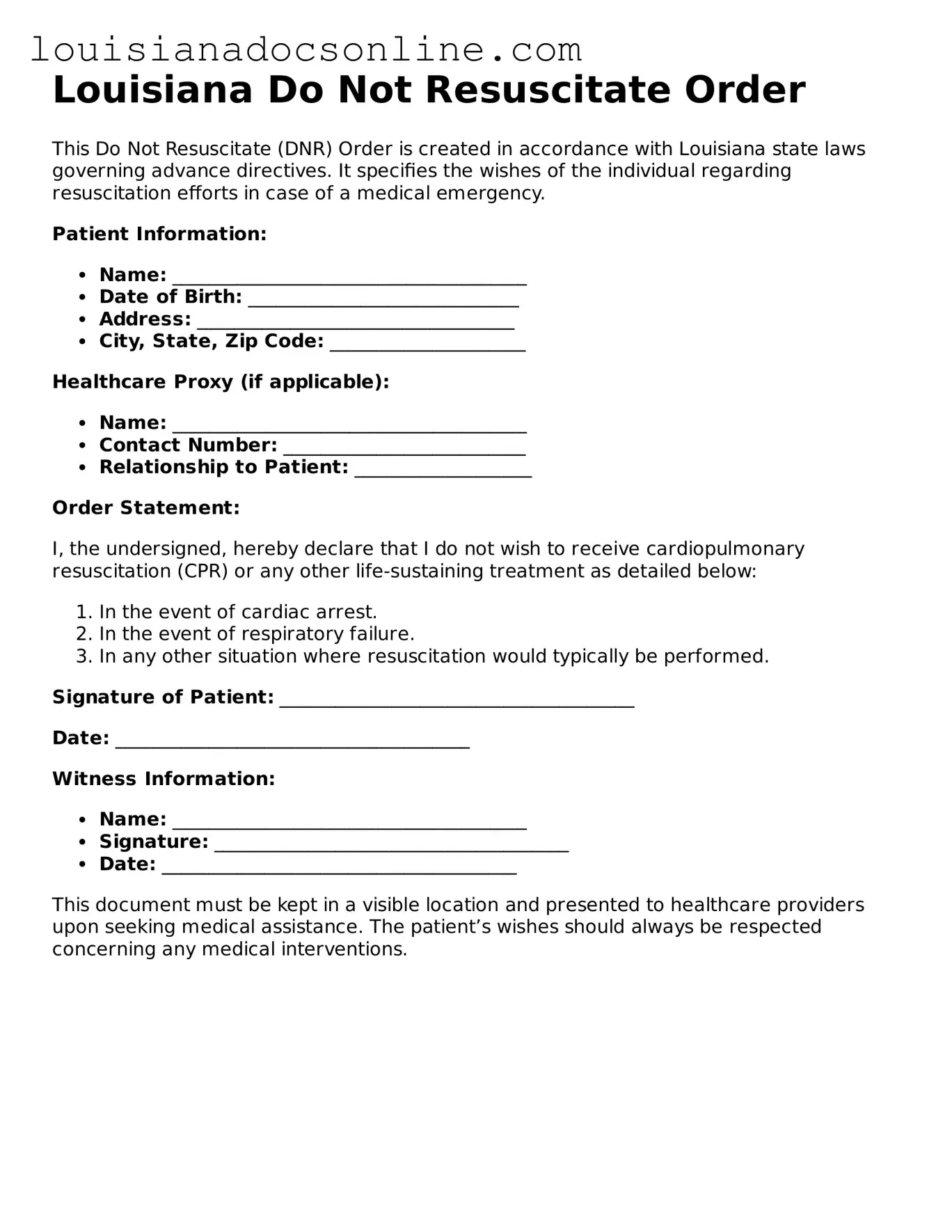Printable Do Not Resuscitate Order Form for Louisiana
A Louisiana Do Not Resuscitate Order (DNR) form is a legal document that allows individuals to express their wishes regarding resuscitation efforts in the event of a medical emergency. This form ensures that a person's preferences about life-saving measures are respected by healthcare providers. Understanding how to complete and implement this form is crucial for anyone considering their end-of-life care options.
Get This Form Now

Printable Do Not Resuscitate Order Form for Louisiana
Get This Form Now
Don’t forget to finish your form
Finish Do Not Resuscitate Order online — fast edits, instant download.
Get This Form Now
or
↓ Do Not Resuscitate Order PDF
